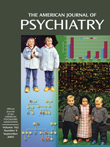Handbook of Forensic Psychology: Resource for Mental Health and Legal Professionals
In this big book, the editors, both from the Department of Psychology, University of Nevada, have assembled 71 contributors, nearly all from university departments of psychology, to produce an encyclopedic handbook of forensic psychology. The volume is organized into four parts: 1) Basic Issues, 2) Assessment, 3) Mental Disorders and Forensic Psychology, and 4) Special Topics. Each part has several chapters, which, in turn, have several sections on different topics.
Part 1, Basic Issues, is designed to orient mental health professionals to the practice of law and orient legal professionals to the practice and limitations of psychology. Part 1 has four chapters. The first, “Psychology and the Law,” has seven sections on different issues in psychology and law. Chapter 2 provides an introduction to psychology for attorneys, chapter 3 on ethical issues in forensic psychology, and chapter 4 on forensic report writing.
Part 2, Assessment, has the following chapters: “Assessment of Dangerousness and Criminal Responsibility,” “Forensic and Ethical Issues in the Assessment and Treatment of the Suicidal Patient,” “Assessing Intent and Criminal Responsibility,” “Assessing Adjudicative Competency,” “Assessing Mental Competency in the Elderly,” “Child Custody Evaluations,” “Forensic Interviewing of Children,” “Evaluation of Psychological Damages,” “Detecting Malingering,” “Assessment of Substance Abuse,” and “Assessment of Posttraumatic Stress Disorder.”
Part 3, Mental Disorders and Forensic Psychology, has five chapters: “Conduct Disorders and Impulse Control in Children,” “Psychopathic Personality,” “Sexual Deviance,” “Disorders of Impulse Control,” and “Developmental Disabilities and Mental Retardation.”
Part 4, Special Topics, has chapters covering issues in eyewitness testimony, recovered memories, Daubert testing (1) of hypnotically refreshed testimony, the polygraph, nonverbal detection of deception, sexual harassment, child abuse and neglect, partner violence, elder abuse, involuntary commitment, selection of jurors, issues of ethnicity, psychology in correctional settings, evaluation of youth in the juvenile justice system, influence tactics in the interrogation room, voluntary intoxication, and sexual assault.
As this description of the chapters would indicate, just about every conceivable topic in forensic psychology is covered, but the coverage of each topic is rather thin. Thus, chapter 1 in part 1 covers psychiatrist/psychologist-patient privilege (five pages), expert testimony (five pages), involuntary civil commitment (three pages), criminal commitment (two pages), duality and sexual relationships with clients (one page), memory enhancement techniques (three pages), and Internet psychotherapy (one page). Some of these topics are also discussed in subsequent chapters.
As might be expected from a multiauthored work, the writing is uneven, ranging from the interesting to the pedantic, and with repetition. For example, the Tarasoff(2) decision of the California Supreme Court in 1976 on the duty of a therapist to report a patient who poses a danger is discussed no fewer than five times (pp. 8, 86, 104, 560, 774). A somewhat less than satisfactory and uneven bibliography follows each chapter (italicization is inconsistent). Be that as it may, the encyclopedic nature of the book should prove helpful as a reference work for mental health and legal professionals. It was obviously a major enterprise to assemble and coordinate 71 contributors. The book is attractively printed.
Reprints are not available; however, Book Forum reviews can be downloaded at http://ajp.psychiatryonline.org.
1. Daubert v Merrell Dow Pharmaceuticals, Inc, 509 US 579 (1993)Google Scholar
2. Tarasoff v Regents of the University of California, 188 Cal Rptr 129, 529 P 2d 553 (1974); reargued, 17 Cal 3d 425, 131 Cal Rptr 14, 551 P 2d 334 (1976)Google Scholar



